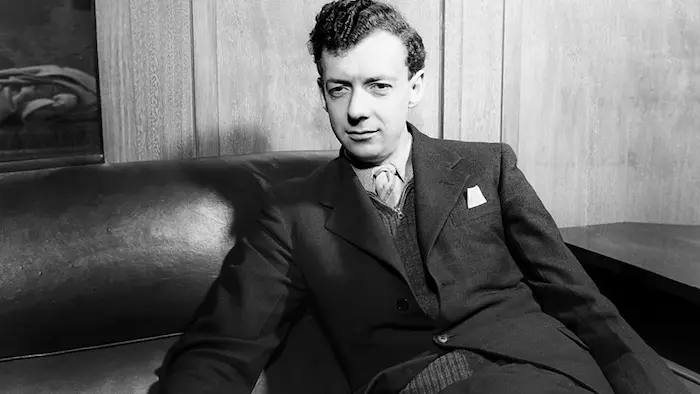The 20th century was a transformative period for English classical music. The century saw the rise of numerous influential composers who redefined the musical landscape of the time. Their works ranged from orchestral masterpieces to innovative chamber music, operas, and choral compositions. This article will explore the lives and contributions of some of the most significant English composers of the 20th century, focusing on their unique styles, notable works, and lasting impact on the world of music.
I. Early 20th Century Composers
1. Ralph Vaughan Williams
Ralph Vaughan Williams (1872-1958) is one of the most prominent English composers of the early 20th century. His music is deeply rooted in English folk traditions and the pastoral landscape of England.
Notable Works
“Fantasia on a Theme by Thomas Tallis” (1910): This work is a testament to Vaughan Williams’ ability to blend ancient and modern musical elements. The piece is based on a melody by the Renaissance composer Thomas Tallis and is known for its lush, expansive sound.
“The Lark Ascending” (1914): A serene and evocative piece for solo violin and orchestra, it captures the essence of the English countryside.
Symphonies: Vaughan Williams composed nine symphonies, each showcasing his versatility and depth. Notable symphonies include the “Pastoral Symphony” (Symphony No. 3) and the “Sea Symphony” (Symphony No. 1).
2. Gustav Holst
Gustav Holst (1874-1934) is best known for his orchestral suite “The Planets.” His music is characterized by its innovative use of rhythm and harmony.
Notable Works
“The Planets” (1914-1917): This seven-movement suite is Holst’s most famous work. Each movement represents a different planet in the solar system, excluding Earth and Pluto (the latter of which had not been discovered at the time). “Mars, the Bringer of War” and “Jupiter, the Bringer of Jollity” are particularly popular.
“St. Paul’s Suite” (1913): Written for the St. Paul’s Girls’ School, where Holst was Director of Music, this piece showcases his skill in writing for string orchestra.
“Hymn of Jesus” (1917): A mystical choral work that reflects Holst’s interest in Eastern religions and philosophies.
II. Mid 20th Century Composers
1. Benjamin Britten
Benjamin Britten (1913-1976) is one of the most celebrated English composers of the 20th century. His contributions to opera, choral music, and orchestral works have left a lasting legacy.
Notable Works
“Peter Grimes” (1945): This opera, based on a poem by George Crabbe, established Britten as a leading figure in 20th-century opera. It tells the tragic story of a fisherman ostracized by his community.
“War Requiem” (1962): A powerful and moving work that combines the Latin Mass for the Dead with war poems by Wilfred Owen. It was composed for the consecration of Coventry Cathedral, which had been destroyed during World War II.
“The Young Person’s Guide to the Orchestra” (1945): A pedagogical piece that introduces the various sections of the orchestra, using a theme by Henry Purcell.
2. William Walton
William Walton (1902-1983) was a prominent composer whose works span various genres, including orchestral music, film scores, and choral compositions.
Notable Works
“Façade” (1922): A series of poems by Edith Sitwell set to music, blending humor and wit with Walton’s distinctive musical style.
“Belshazzar’s Feast” (1931): A dramatic cantata for baritone, chorus, and orchestra, based on the biblical story of Belshazzar.
“Violin Concerto” (1939): A lyrical and virtuosic work that has become a staple of the violin repertoire.
III. Late 20th Century Composers
1. Michael Tippett
Sir Michael Tippett (1905-1998) was known for his complex and innovative compositions. His music often reflects his humanitarian beliefs and social consciousness.
Notable Works
“A Child of Our Time” (1941): An oratorio inspired by the events of Kristallnacht. It incorporates African-American spirituals and addresses themes of oppression and reconciliation.
“Concerto for Double String Orchestra” (1938-1939): A vibrant and energetic work that showcases Tippett’s mastery of string writing.
Operas: Tippett’s operas, such as “The Midsummer Marriage” (1955) and “King Priam” (1962), are known for their complex narratives and intricate musical language.
2. Peter Maxwell Davies
Sir Peter Maxwell Davies (1934-2016) was a versatile composer whose works range from symphonies to chamber music, choral works, and operas. He was also known for his role as Master of the Queen’s Music from 2004 to 2014.
Notable Works
“Eight Songs for a Mad King” (1969): A dramatic monodrama for baritone and ensemble, exploring the madness of King George III.
“Symphonies: Davies composed ten symphonies, each reflecting his evolving style and engagement with contemporary issues.
“The Lighthouse” (1980): An opera based on the mysterious disappearance of three lighthouse keepers, blending elements of mystery and psychological drama.
IV. Influence and Legacy
The contributions of these composers have had a profound impact on both English and international music. Their works continue to be performed and celebrated around the world, influencing new generations of musicians and composers. The blending of traditional English elements with contemporary techniques created a unique and enduring legacy that continues to resonate in the music of today.
See Also: 6 Classical Music Pieces Inspired by Swans: All You Want to Know
V. Conclusion
The 20th century was a period of remarkable creativity and innovation in English classical music. Composers like Ralph Vaughan Williams, Gustav Holst, Benjamin Britten, William Walton, Michael Tippett, and Peter Maxwell Davies played pivotal roles in shaping the musical landscape of the time. Their works, characterized by a blend of tradition and modernity, have left an indelible mark on the world of classical music. As we look back on their contributions, we can appreciate the richness and diversity of English music in the 20th century, and the enduring legacy of these remarkable composers.

